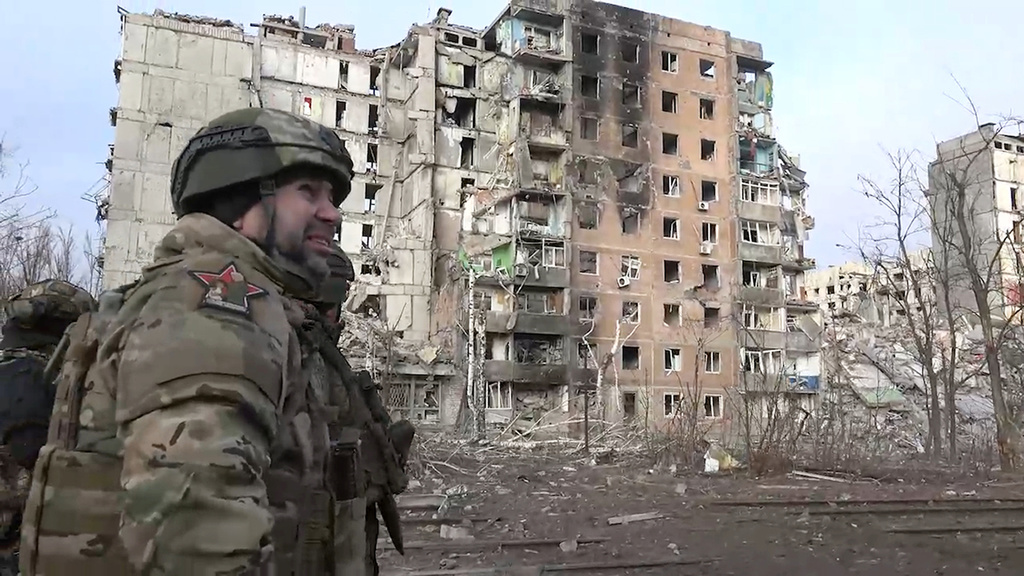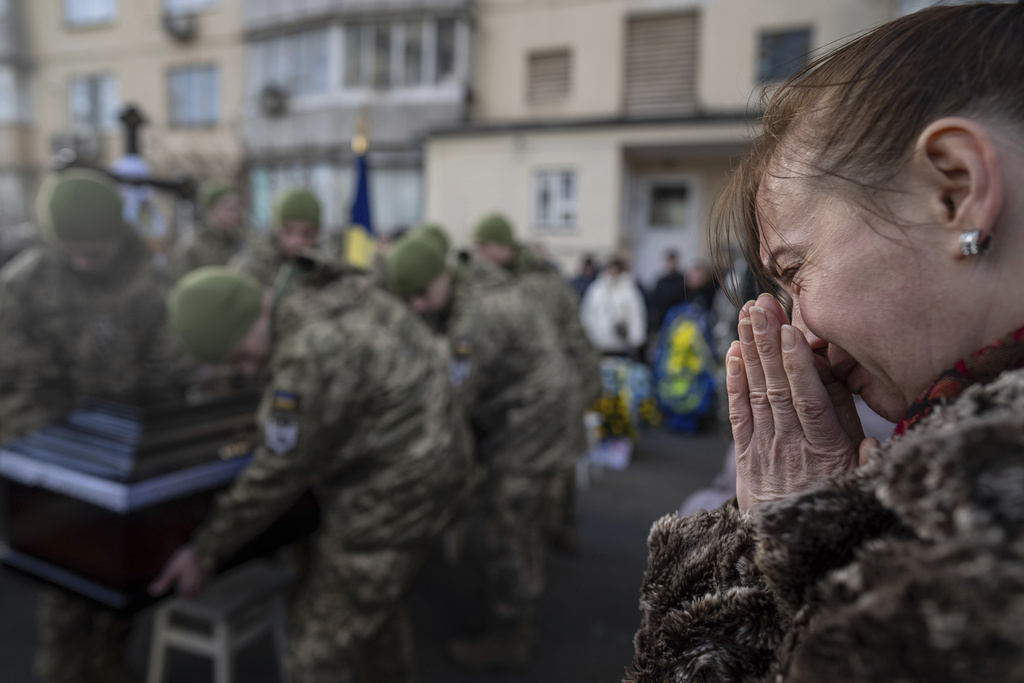Russia’s victory in the eastern Ukrainian city of Avdiivka this month, and its subsequent smaller victories since then, is heightening concerns of a Russian counteroffensive.
Ukrainian forces withdrew from the eastern city in the Donetsk oblast, providing Russia’s military with its first major battlefield victory since seizing the eastern city of Bakhmut last May. The Ukrainians withdrew after facing shortages of ammunition and air defenses, while Russian forces have also been able to take some other towns and villages since then.
“It’s not going to be operational significant at this level,” Kateryna Stepanenko, an analyst with the Institute for the Study of War, said of Ukraine’s withdrawal of Avdiivka. “But it doesn’t mean that it cannot develop into larger gains for Russians in the future, especially as Ukraine doesn’t get more aid.”
Russian forces captured the village of Stepove, Russia’s Defense Ministry said on Wednesday, while Ukrainian officials said on Tuesday its forces withdrew from Stepove, the neighboring village of Sieverne, and the village of Lastochkyne.

“Ukrainian military officials have been signaling that the lack of air defense systems and air defense missiles have been a really big component in Russia being able to use their aircraft to launch glide bombs on a vehicle and establish temporary air superiority over a section of the front lines,” she told the Washington Examiner. “I believe it’s the first time that we have seen Russians be able to establish a temporary air superiority over a section of the front lines.”
State Department spokesman Matthew Miller noted on Tuesday that officials had seen “Ukrainian front-line troops who don’t have the ammo they need to repel Russian aggression.”
Russia is attempting to capitalize on Ukraine’s shortages, which U.S. and Ukrainian officials have said are a consequence of the stalled debate in Congress about allocating additional money for Ukrainian military aid. The Department of Defense has not provided Ukraine with weapons since the end of 2023, though officials have said they would be able to get a new package to Ukraine quickly after Congress passes a bill and the president signs it.
Ukrainian President Volodymyr Zelensky warned this week, “The next few months are going to be difficult for us.” He also said Russia could begin a new offensive in May, following the spring season when it’s normally rainy and muddy, not good conditions for maneuver warfare.
“The longer the Ukrainian forces do not have the initiative on the front lines, the more Russia has the capacity to pick and choose which front lines it wants to engage and which front lines it wants to laterally redeploy additional reserves to,” Stepanenko added. “So the longer that Ukraine is forced to be on this defensive, the more Russia has the upper hand in deciding where it’s going to pursue offensive operations, at what time, at what scale.”
Since the beginning of 2024, Russian forces have seized about an additional 70 square miles, which is roughly the size of Washington, D.C., according to the ISW.

President Joe Biden met with congressional leaders at the White House on Tuesday to stress the importance of passing his supplemental funding request for Ukraine. House Republicans have held up the supplemental request, even tanking a bipartisan agreement that included concessions requested by them regarding immigration reform.
Following the meeting, White House national security adviser John Kirby told reporters on Tuesday that the battlefield implications of not passing the supplemental request would be “incredibly dire.”
“There are consequences, and the consequences are incredibly dire. Congress must take action. We have to support our national security,” he said. “If they continue to get no support from the United States, in a month or two, it is very likely that the Russians will achieve more territorial gains and have more success against Ukrainian front lines in terms of just territory gain, mostly in the east but potentially even in the south.”
A component of Russian President Vladimir Putin’s war strategy is his belief that Russia can outlast Western support for Ukraine. He and Russian leaders maintain their initial war objectives of trying to overthrow the Ukrainian government and annex all of Ukraine.
CLICK HERE TO READ MORE FROM THE WASHINGTON EXAMINER
He ramped up his rhetoric regarding the use of nuclear weapons during his annual state-of-the-nation speech on Thursday in response to comments made by French President Emmanuel Macron that France could send troops to fight in Ukraine. Macron’s comments were quickly dismissed by many NATO members.
“They must understand that we also have weapons that can hit targets on their territory,” Putin said, warning of “tragic consequences” if NATO forces are deployed to Ukraine. “All this really threatens a conflict with the use of nuclear weapons and the destruction of civilization. Don’t they get that?”
